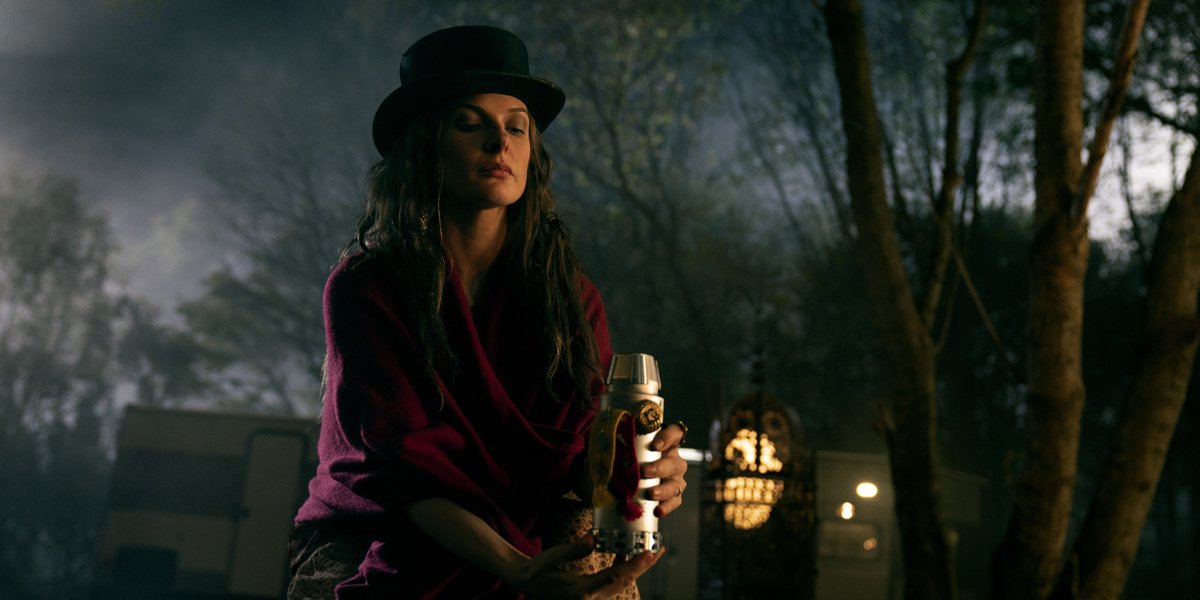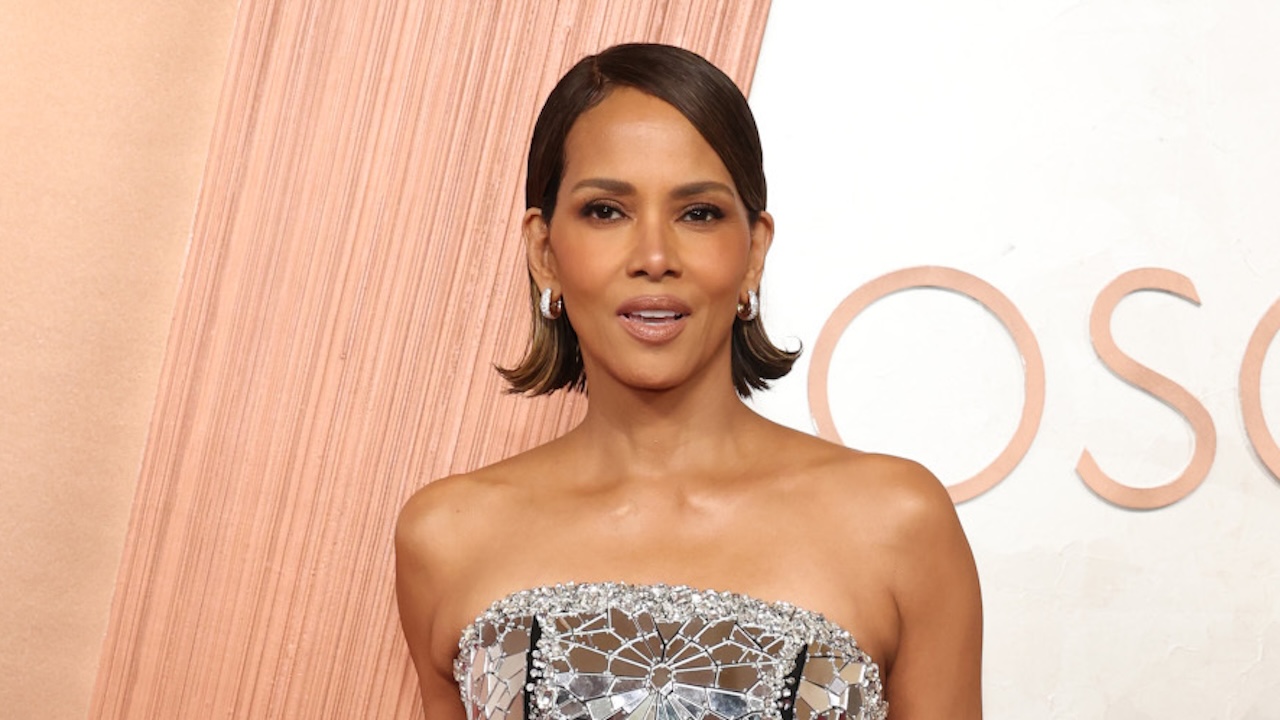Stephen King first published Doctor Sleep back in 2013, and for the past six years it has had the appearance of a booby trap for filmmakers. After all, the tome is a not just a sequel to The Shining – a.k.a. a follow-up to one of the most influential and beloved horror stories of the 20th century – but was partially written in response to King’s notorious dislike of director Stanley Kubrick’s 1980 film adaptation of its predecessor. Reading the novel, you get the sense that certain choices were made by the author specifically to spite the Kubrick feature, and the changes that were made bringing the 1977 book to the big screen.
Thus, the idea of making a Doctor Sleep movie has long had a certain “damned if you do, damned if you don't” quality about it. Anyone put in charge of the project would be a slave to two contrary masters: the amount of love that exists for Kubrick’s film among audiences would demand any big screen sequel adaptation have fidelity to the (genius) prior cinematic vision, but still while there would also be the constant pressure to flip a notorious legacy and create something that would earn King’s approval. On paper, it seems like both an impossible and thankless endeavor for any normal filmmaker.
But Warner Bros. ultimately didn’t hire a normal filmmaker to take the helm of Doctor Sleep. They hired Mike Flanagan. This is a writer/director who not only came to the production with experience adapting Stephen King on his resume, having made the phenomenal Gerald’s Game for Netflix, but also with tremendous history telling stories that grapple with key themes like trauma and recovery. In retrospect, he was truly the ideal person to take on this property, as evidenced by the fact that what he has created with it is both a magnificent movie in its own right, and a worthy follow-up to one of the greatest films of all time.
Perfectly melding the works of Kubrick and King, Doctor Sleep is a totally different kind of story than The Shining, but operates as a wonderful expansion of that world seen through the eyes an adult Dan Torrance. It’s a beautifully faithful adaptation that also makes successful changes that effectively improve the source material (even those not specifically forced by the Kubrick alterations), and buoyed by the performances of its three central stars, it’s an epic journey full of horror, magic, and intense drama from beginning to end.
Fully comfortable operating as a character study following the life and times of Dan Torrance (Ewan McGregor), the story picks up almost immediately after the events of The Shining, finding young Danny (Roger Dale Floyd) living with his mother, Wendy (Alex Essoe), in Florida, and still recovering from the nightmarish events that unfolded at the isolated Overlook Hotel the previous winter. Thanks to visits from the deceased Dick Hallorann (Carl Lumbly), who quickly bonded with Danny because of their shared telepathic/psychic abilities, he is able to quiet some of the demons that followed him down from the Rocky Mountains, but he essentially lives in fear of his gift.
This naturally translates to serious issues as an adult – and nothing is helped by his genetic tendency toward alcoholism and rage that he inherited from his father, Jack. This unfortunate formula results in Dan becoming a drunk and a drifter, not only haunted by the events of his childhood, but the horrible and careless things he does as a result of his substance abuse.
After hitting rock bottom, Dan finds himself in a small New Hampshire town, and he starts to rebuild his life, particularly thanks to the help of the friendly Billy Freeman (Cliff Curtis), and the support of his Alcoholics Anonymous group led by Dr. John Dalton (Bruce Greenwood). It’s also where he winds up psychically connecting with Abra (Kyliegh Curran), a young girl from a few towns over who actually shines even brighter than him.
Things seem to be on an even keel for once – but everything begins to shatter when Abra accidentally gets the attention of the True Knot. Led by Rose The Hat (Rebecca Ferguson) and having existed for centuries, this is a group that feeds on those who shine, extracting it from people through fear and pain, and inhaling it as steam. With Abra in very real danger, Dan is forced to confront his trauma, and both access and embrace the power he has spent his entire life suppressing.
Given the notoriety of the King/Kubrick conflict, it’s actually kind of magical to see what Mike Flanagan has done here, having crafted an excellent piece of cinema while operating as a kind of pop culture mediator. Nobody could watch Doctor Sleep and question his clear and deep appreciation for two true masters, as its deep in the movie’s DNA. The loving recreation of The Shining’s Overlook Hotel production design is awe-inspiring, and the depths of all the characters and most important themes in the story are taken straight from heart of the novel.
What in turn makes Doctor Sleep such a bold endeavor, however, is that it’s also purely a Mike Flanagan film. This is a director with the confidence needed to know that it is not his job to ape the next-level cinematography employed by Stanley Kubrick, or lift every line of dialogue from Stephen King’s book. The reality is that this is a story that fits directly in his wheelhouse, having frequently demonstrated a gift for crafting a perfect balance between the fantastical and realistic, psychology-driven drama, and he expresses it here.
So instead of perfect symmetry and an abundance of Steadicam-driven tracking shots, we have Flanagan’s dark-but-rich color pallet, and a Newton Brothers score that doesn’t abuse the famed synth-played Shining theme. And while some changes from the book are out of necessity (like the fact that Dick Hallorann isn’t alive at the start of the story), there are also other shocking alternative choices made that do a brilliant job raising the stakes as the film barrels towards its exhilarating third act.
Flanagan fans will note that the movie provides him the opportunity to work with a number of past collaborators on the performance front – including the aforementioned Bruce Greenwood, Violet McGraw, Robert Longstreet, Carel Struycken, and others who can’t be mentioned because of spoiler reasons – but it’s from the three key newcomers to the writer/director’s filmmaking family that supply the most phenomenal performances.
Ewan McGregor has every ounce of the passionate pathos required to bring a character as damaged and inherently good as Dan Torrance to the big screen, able to both sell the heavy baggage that he carries with him everywhere, and demonstrate the powerful inner-strength that he needs to overcome his past. It’s a turn that is in perfect harmony with Kyliegh Curran’s, who proves to be a tremendously exciting up-and-comer who infuses her role with impressive charisma and energy. Abra is a girl who shines and shines brightly, and so does Curran in the film.
Truly the performance that everyone will be talking about walking away from Doctor Sleep, however, is Rebecca Ferguson as Rose The Hat – now all set to be remembered as one of the all-time great cinematic Stephen King villains right alongside the likes of Jack Nicholson's Jack Torrance, Kathy Bates’ Annie Wilkes, Bill Skarsgard’s Pennywise The Clown, and Clancy Brown's Captain Hadley. Simultaneously she manages to be both seductively mesmerizing, and viciously sadistic, and it makes every moment she is on screen utterly captivating. By the end you loathe her, and absolutely love her, which is really everything you could ask for from the character.
Save for a bit of a hiccup in pacing towards the end of the movie’s first half, there is so much to love about Doctor Sleep. What it’s able to accomplish from a legacy standpoint is breathtaking, and it delivers intelligent storytelling, stunning photography, phenomenal performances, and also one of the most disturbing sequences in recent memory. It’s a tremendous achievement, and among the best Stephen King adaptations ever.

Eric Eisenberg is the Assistant Managing Editor at CinemaBlend. After graduating Boston University and earning a bachelor’s degree in journalism, he took a part-time job as a staff writer for CinemaBlend, and after six months was offered the opportunity to move to Los Angeles and take on a newly created West Coast Editor position. Over a decade later, he's continuing to advance his interests and expertise. In addition to conducting filmmaker interviews and contributing to the news and feature content of the site, Eric also oversees the Movie Reviews section, writes the the weekend box office report (published Sundays), and is the site's resident Stephen King expert. He has two King-related columns.
Jake's Phone Call On Fire Country Shocked Me, And I Have A Theory About How It Will Impact His Career
Halle Berry's Incredible Mirrored Oscars Dress Was Such A Pain That Christian Siriano Cut It From His Runway Show
Years After Turning Down Barbie Role, Matt Bomer Explains Why He Doesn’t Regret The Decision











